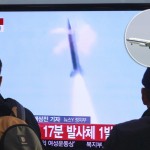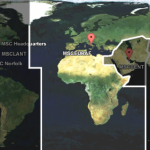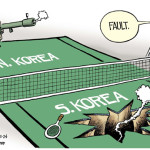The Nautilus Peace and Security Network (NAPSNet) is a non-governmental information network launched by the Nautilus Institute in November 1993. NAPSNet covers the key areas of research and policy work of the Nautilus Institute nodes in San Francisco, Melbourne and Seoul, including Austral security, nuclear deterrence, energy security, climate change adaptation, the DPRK, governance and civil society and the links between these themes and the three regions in which our nodes are found—North America, Northeast Asia, and the Austral-Asia region.
The Weekly Report succinctly presents six items each week that we believe every reader should know about these fields.
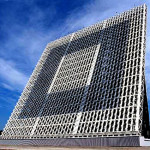
DETERRENCE: Russia to Upgrade Missile Attack Warning System DPRK: North Korea’s Real Annual GDP Growth GOVERNANCE AND CIVIL SOCIETY: Parties Face Calls for Reform after Elections CLIMATE CHANGE ADAPTATION: Technical Report: Designing a Climate Resilient Future: A Guide to Integrating Multiple Perspectives in Spatial Planning DETERRENCE: Russia to Upgrade Missile Attack Warning System, Tatyana Rusakova, Russia Beyond The Headlines, July […]
Go to the article

DETERRENCE: Simulating War Might Be the Best Way to Prevent One ENERGY SECURITY: Why the US Needs to Lift the …
Go to the article
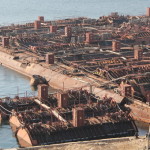
DETERRENCE: Russian Drills Aim at Potential Nuclear Disaster Response – Ministry DPRK: S. Korea to Provide 3 Billion Won in Aid to N. Korea ENERGY SECURITY: The Big Green Test – Conservatives and Climate Change GOVERNANCE AND CIVIL SOCIETY: Pathways to Deep Decarbonisation: Interim 2014 Report CLIMATE CHANGE ADAPTATION: A Geospatial Dataset for U.S. Hurricane Storm Surge and Sea-level Rise […]
Go to the article
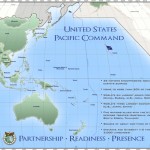
DETERRENCE: How the Army Should Pivot to Asia GOVERNANCE AND CIVIL SOCIETY: Japanese Report on the Kono Statement Draws Ire from Seoul CLIMATE CHANGE ADAPTATION: Location Security and Environmental-Induced Displacement: A Case Study of the Riverine Islands in Bangladesh ENERGY SECURITY: Obama on Obama on Climate AUSTRAL PEACE AND SECURITY: Australia-US Defence Deal: What it Means DETERRENCE: How the Army Should […]
Go to the article

As Commander of the US-ROK I Corps from 1976-78, Gen. John Cushman concluded that US-ROK artillery and rocket units could not gather intelligence, select targets, control nuclear fires, and coordinate nuclear strikes with maneuver units, and would not pass audit. His overriding aim was to defend his sector without being forced to consider nuclear war. (vol. V, 22-7) [PDF, 2.7MB]
Go to the article




